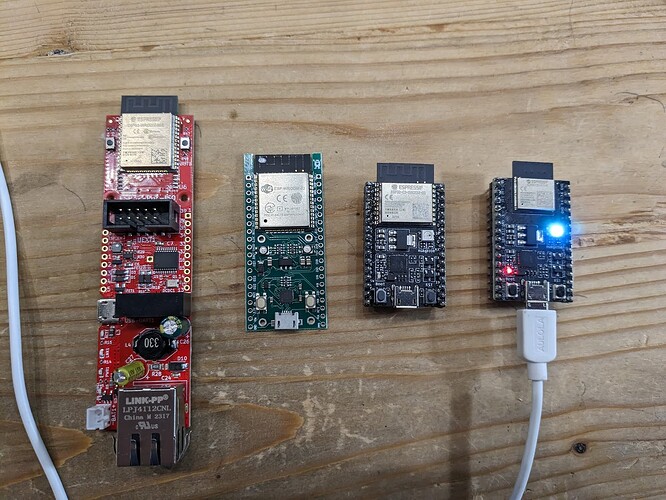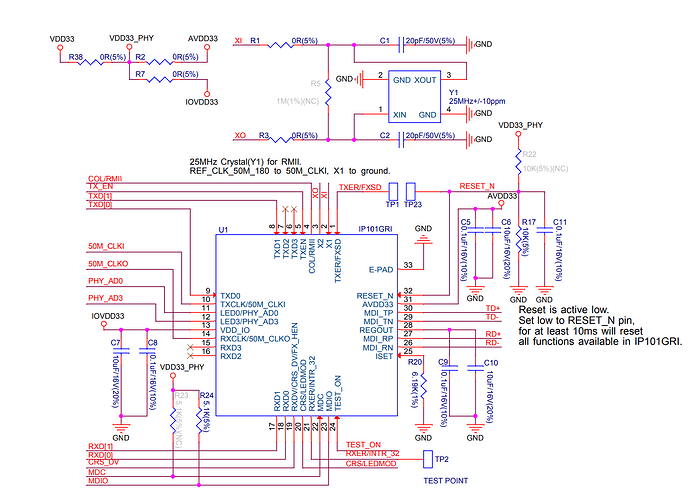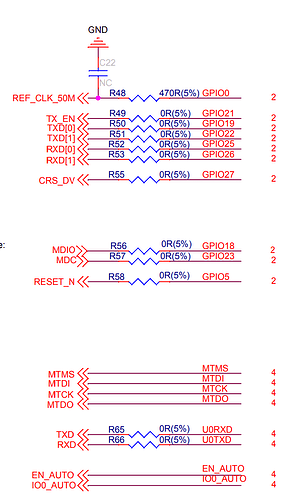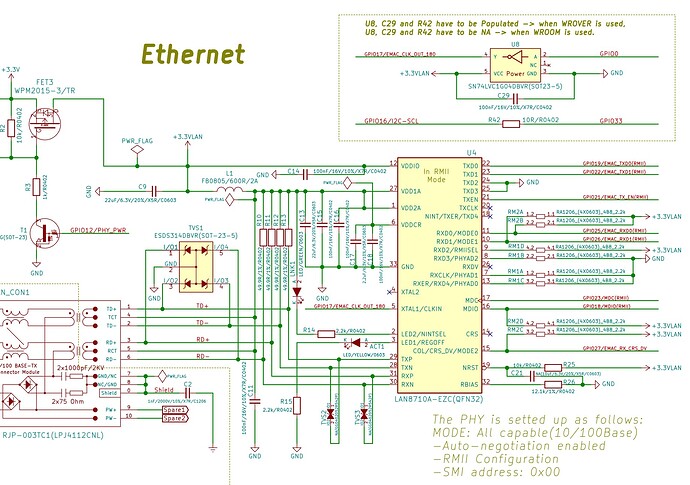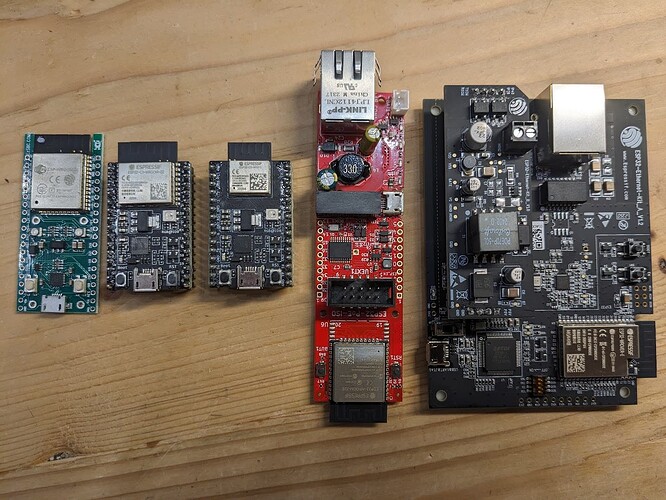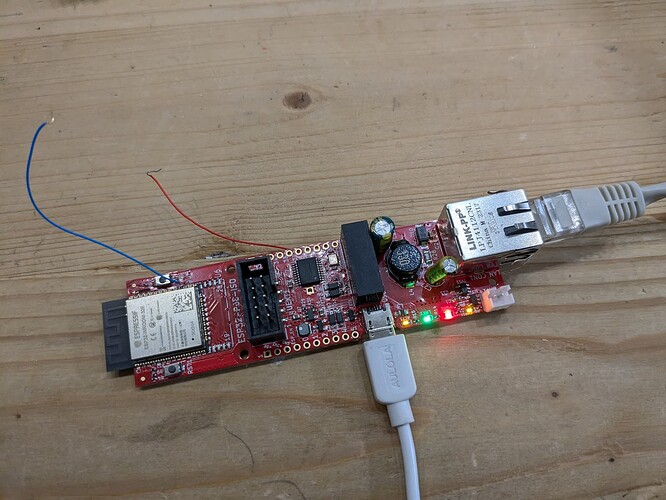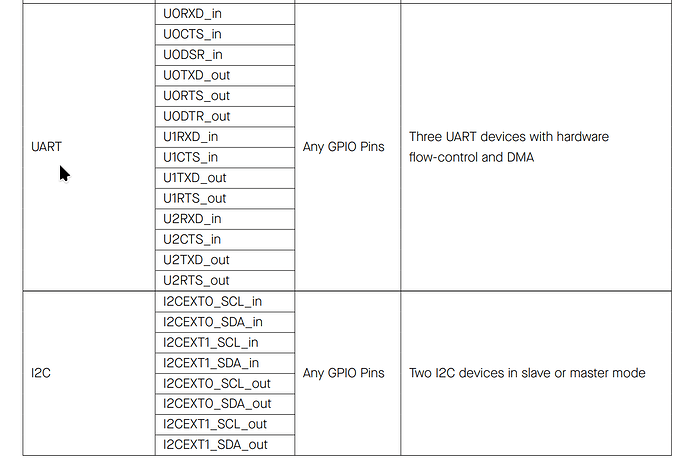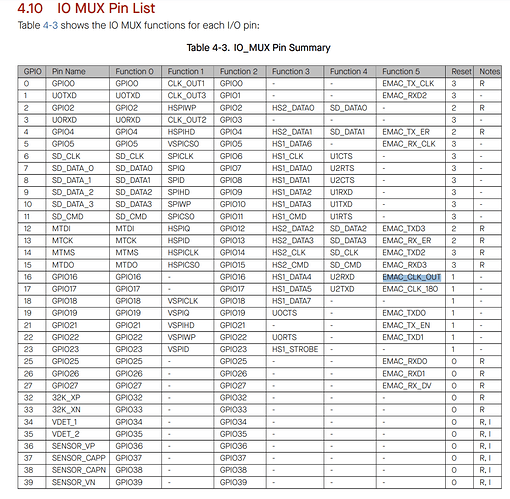This topic is to explore running Zephyr on ESP32 devices. To start, we have four boards:
- Olimex ESP32-POE-ISO (ESP32-WROOM-32E module, Xtensa)
- EzSBC ESP32 Breakout and dev board (ESP32-WROOM-32 module, Xtensa)
- ESP32-C-DevKitC (ESP32-C3-WROOM-02, RiscV)
- ESP32-C-DevKitM (ESP32-C3-MINI-1, RiscV)
Two boards with the ESP32-WROOM modules (Xtensa microprocessor) and two boards with the ESP32-C3 (RISC-V).
The process to build and flash Zephyr is similar for both architectures:
C3 RiscV:
west build -b esp32c3_devkitm --sysbuild samples/hello_world
Xtensa:
west build -b esp_wrover_kit --sysbuild samples/hello_world
And to flash:
west flash
You can run tio on the serial port to view the console.
ESP-ROM:esp32c3-api1-20210207
Build:Feb 7 2021
rst:0x1 (POWERON),boot:0xc (SPI_FAST_FLASH_BOOT)
SPIWP:0xee
mode:DIO, clock div:2
load:0x3fcc1e00,len:0x1fd0
load:0x403b6e00,len:0x7844
load:0x403bee00,len:0x1200
entry 0x403b92e6
I (48) boot: MCUboot 2nd stage bootloader
I (48) boot: compile time May 23 2024 18:07:00
I (48) boot: Multicore bootloader
I (49) spi_flash: detected chip: generic
I (52) spi_flash: flash io: dio
W (54) spi_flash: Detected size(4096k) larger than the size in the binary image header(2048k). Using the size in the binary image header.
I (67) boot: chip revision: v0.3
I (69) boot.esp32c3: SPI Speed : 40MHz
I (73) boot.esp32c3: SPI Mode : SLOW READ
I (78) boot.esp32c3: SPI Flash Size : 4MB
I (81) boot: Enabling RNG early entropy source...
I (97) spi_flash: flash io: dio
[esp32c3] [INF] Image index: 0, Swap type: none
[esp32c3] [INF] Loading image 0 - slot 0 from flash, area id: 1
[esp32c3] [INF] Application start=40380730h
[esp32c3] [INF] DRAM segment: paddr=000136f0h, vaddr=3fc836c0h, size=0053ch ( 1340) load
[esp32c3] [INF] IRAM segment: paddr=00010040h, vaddr=40380000h, size=036b0h ( 14000) load
[esp32c3] [INF] DROM segment: paddr=00020000h, vaddr=3c000000h, size=005B0h ( 1456) map
[esp32c3] [INF] IROM segment: paddr=00030000h, vaddr=42010000h, size=02508h ( 9480) map
*** Booting Zephyr OS build v3.6.0-4560-g11920e35a00e ***
Hello World! esp32c3_devkitm/esp32c3
The development process feels very similar between the Xtensa and RiscV devices.
Next steps will be to configure the WiFi networking and the Ethernet on the Olimex board.
